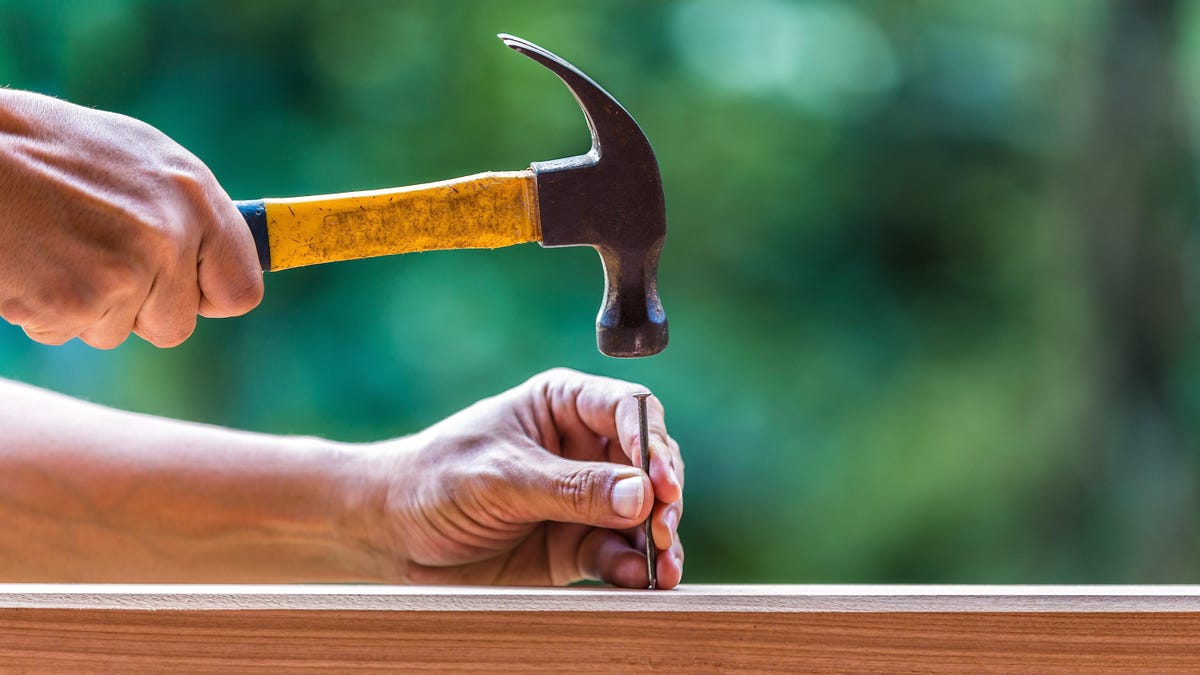Five Hand Tools It's OK to Buy Cheap - 4 minutes read

Tools can be extremely expensive, and it’s easy to assume that spending more will get you higher-quality tools. While that’s often true, but the fact is you don’t always need a tool of higher quality.
Certainly there are ways to mitigate those costs—by buying used tools, or checking out estate sales—but as a general rule of thumb, any tool that you know you’re going to use exactly once should probably be rented, or purchased as cheaply as possible. And when it comes to these five tools, you can pretty much always buy the cheapest one you can find.
PliersUnless you work regularly on projects that require great precision, just about any pair of slip-joint pliers will do the jobs you need done. If you do a bit more around the house, you might invest in a cheap set of pliers that offer a pair of nose pliers (for tight spots) and a groove joint option (for irregularly-shaped objects)—but again, go cheap. If you’re not using your cheap pliers every single day, they will last for a very, very long time.
Cheap pliers you can live with:
Hacksaw bodyHacksaws are necessary if you ever need to cut stuff like metal sheets or PVC piping, but the key thing to remember here is that the saw blades are replaceable, and the saw blades are really all that matters. If you only occasionally tear your toolshed apart looking for that hacksaw you bought 15 years ago, when the time comes for a new one you don’t need anything fancy in terms of the saw body. Buy the cheap one, then put your money where it matters—into the saw blade.
All the hacksaw handle you really need:
Rubber malletA rubber mallet is the kind of tool you don’t even know exists until the precise moment you need one. You’re wondering how to hammer something into place without shattering it or leaving hammer marks, and the world of rubber mallets is revealed to you. But a rubber mallet is a pretty simple tool, and it’s very hard to make one that is so cheap it’s not at least basically useful. If you’ve tackled your first-ever project that needs a rubber mallet and can safely assume you won’t need it again for several years, buy the cheapest one you can find and you will never look back. Or DIY one with a tennis ball!
It’s a rubber mallet, what do you expect?
Cheap rubber mallet $4.19
HammerHammers are dead simple. Heavy thing on top, long handle to grip, pound stuff into submission. Unless you know the difference between a framing hammer and a ripping hammer, you probably just need a claw hammer—and you probably don’t need to spend much on it. The key here is how often you use your hammer. Even the cheapest hammer you pick up at a hardware store will get most basic jobs done, but the cheaper hammers will be louder, and will send some very powerful vibrations through your arm as you use them. More expensive claw hammers will absorb more of that shock for you. So the key is whether you’re hammering constantly and icing your arm afterward or if you’ve sunk about three nails in the last year. If the latter, go cheap and never look back.
A hammer that you can hit stuff with:
PrybarsA prybar is just a hunk of metal designed to slip between things and give you the torque necessary to remove them. For most folks and most projects, any cheap prybar will do the job well enough, whether it’s prying up nails or ripping up old flooring. The simple nature of the tool means that there’s isn’t much fanciness you can add to it.
Wanna pry something cheap?
Bonus: ToolboxesFinally, if you’re an occasional DIYer and not a dedicated handy-person, storing your sad collection of cheap tools doesn’t require a storage cabinet that costs thousands of dollars. A super cheap plastic toolbox is probably fine, and if you want something a bit classier you can get away with a hundred bucks or so and get all the storage you’ll need.
Like a lot of things, tools can be objects of beauty, and the urge to spend on them can be powerful. But if you only strap on the toolbelt occasionally, don’t waste your cash on these tools.
Where to put your cheap tools:
What tools do you cheap out on?
Source: Lifehacker.com
Powered by NewsAPI.org